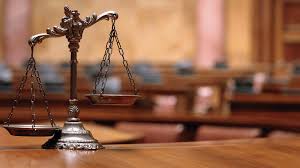In the complex world of legal proceedings, defense attorneys play a crucial role as advocates for individuals accused of crimes. These legal professionals are tasked with ensuring that their clients receive a fair trial and that their rights are protected throughout the judicial process. With a deep understanding of the law and the ability to navigate intricate courtroom dynamics, defense attorneys are essential in upholding the principles of justice and due process. Their commitment to defending the accused is not just a job; it’s a vital component of the legal system that reinforces the belief that everyone deserves representation, regardless of the allegations they face.
The work of a defense attorney extends far beyond the courtroom. It involves meticulous case preparation, securing evidence, negotiating with prosecutors, and developing strategic defenses tailored to each unique situation. Whether representing clients in criminal cases ranging from minor offenses to serious felonies, defense attorneys must exhibit strong analytical skills, persuasive communication, and unwavering dedication. This article explores the multifaceted role of defense attorneys, highlighting their responsibilities, challenges, and the ethical dilemmas they often navigate while striving to ensure justice is served.
Responsibilities of Defense Attorneys
Defense attorneys undertake a wide range of responsibilities, starting from the moment they agree to represent a client. They are tasked with investigating the details of the case, analyzing evidence, and identifying potential defenses that can be raised in court. This process often involves interviewing witnesses, gathering documentation, and consulting experienced attorneys to build a robust case. Effective communication and negotiation skills are vital as defense attorneys often engage with prosecutors to explore plea deals or reduce charges. In this intricate balancing act, securing a Dallas defense attorney for your case can significantly affect the outcome, ensuring that the accused has knowledgeable guidance throughout the proceedings.

Challenges and Ethical Dilemmas
Navigating the legal field as a defense attorney comes with its share of challenges and ethical dilemmas. Attorneys must often grapple with balancing their duty to defend their clients vigorously against their own moral compass, especially in cases involving serious crimes. There are instances where attorneys may uncover evidence that could exonerate their client or, conversely, incriminate them, leading to tough decisions about how to proceed. The pressure to achieve favorable outcomes, coupled with the emotional weight of representing individuals who may face severe penalties, underscores the complex nature of their work. Ultimately, defense attorneys are not merely representatives; they are pivotal players in ensuring that justice prevails amidst the challenges posed by the legal system.
In conclusion, defense attorneys stand as vital guardians of the legal system, ensuring that the principle of justice is upheld for all individuals, regardless of the nature of the charges against them. Their work requires not only a comprehensive understanding of the law but also a profound commitment to ethical standards and the nuances of human experience. Balancing the demands of their profession with the moral complexities inherent in defending those accused of crimes, these attorneys strive to provide the accused with a robust defense while navigating the pressures of the courtroom and public opinion. The role of a defense attorney is not just about winning cases; it’s about fostering a fair legal process, contributing to the safeguarding of individual rights, and ultimately reinforcing the foundational belief that every person is entitled to a vigorous defense and a fair chance at justice.


